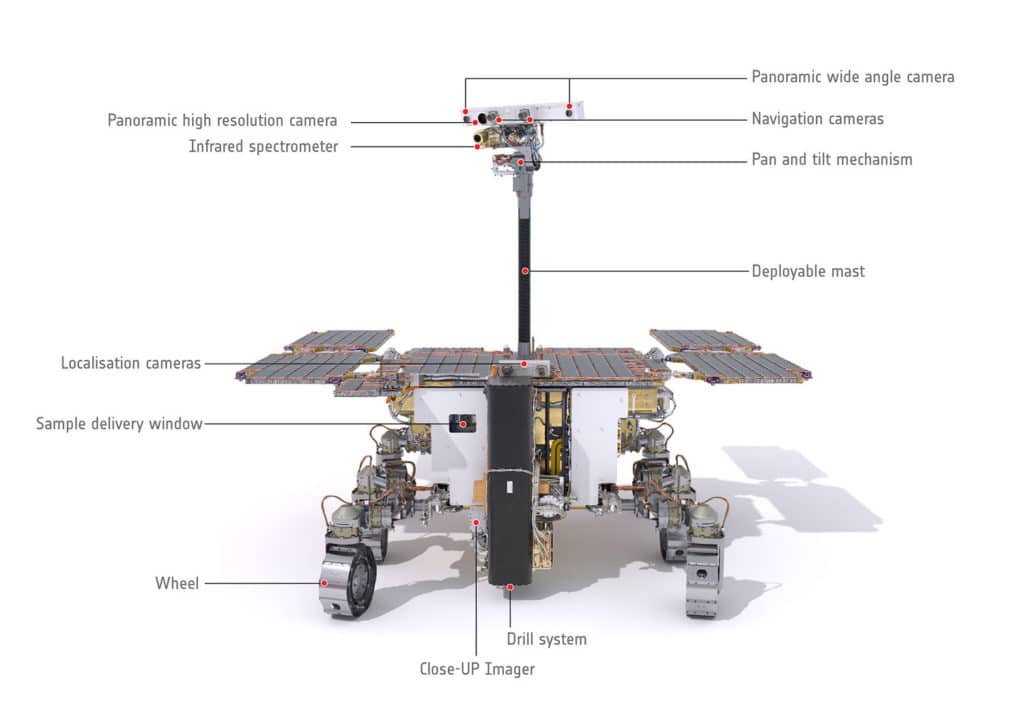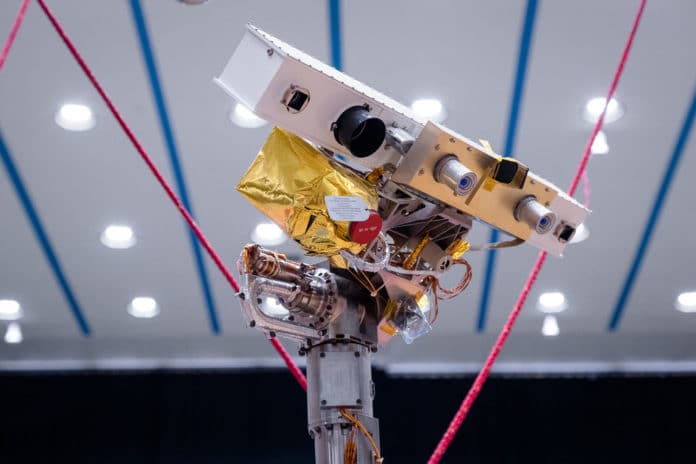European Space Agency (ESA) has revealed that its Rosalind Franklin Mars rover is confirmed to be technically ready for launch. The agency will now carry out a fast-track industrial study to better determine the available options for bringing the ExoMars mission to Mars without Russia’s help.
Last week, ESA revealed that it is suspending the collaboration with Russia’s space agency Rocosmos on the ExoMars rover mission over Moscow’s invasion of Ukraine. The mission was originally slated to launch in 2018, but it faced several delays due to technical problems and COVID-19 restrictions. The latest launch window was supposed to open on September 20, 2022, but now it is no longer possible following the suspension.
Despite suspending Russia from the mission, the agency revealed that the mission’s System Qualification and Flight Acceptance Review took place as planned in March. The Review Board confirmed that the spacecraft would have been ready for timely shipment to the launch site, and the program had a sufficient time margin for the original launch opportunity in September this year.

The ESA-led Rosalind Franklin rover has a unique potential to search for evidence of past life on Mars thanks to its drill and laboratory. It will be the first rover to drill 2 meters below the surface, and the first to use novel driving techniques, including wheel-walking, to overcome obstacles.
The original plan was to launch the mission atop a Russian Proton-M rocket. And when the mission reached Mars, the rover would then descend to the surface using a Russian-built landing craft. Unfortunately, relations with Moscow have now scrubbed this plan. The ExoMars elements are now being prepared for storage at a Thales Alenia Space site in Italy, awaiting further instruction.
The teams will be looking for the earliest possible launch depending on how quickly technologies can be developed to support a European-led mission or in collaboration with other international partners and the availability of compatible launchers and launch sites.
“I hope that our Member States will decide that this is not the end of ExoMars, but rather a rebirth of the mission, perhaps serving as a trigger to develop more European autonomy,” says David Parker, Director of Human and Robotic Exploration at ESA. “We count on brilliant teams and expertise across Europe and with international partners to reshape and rebuild the mission. The team is dedicated and focused on setting out the next steps to ensure we bring this incredible rover to Mars to complete the job it was designed for.”
